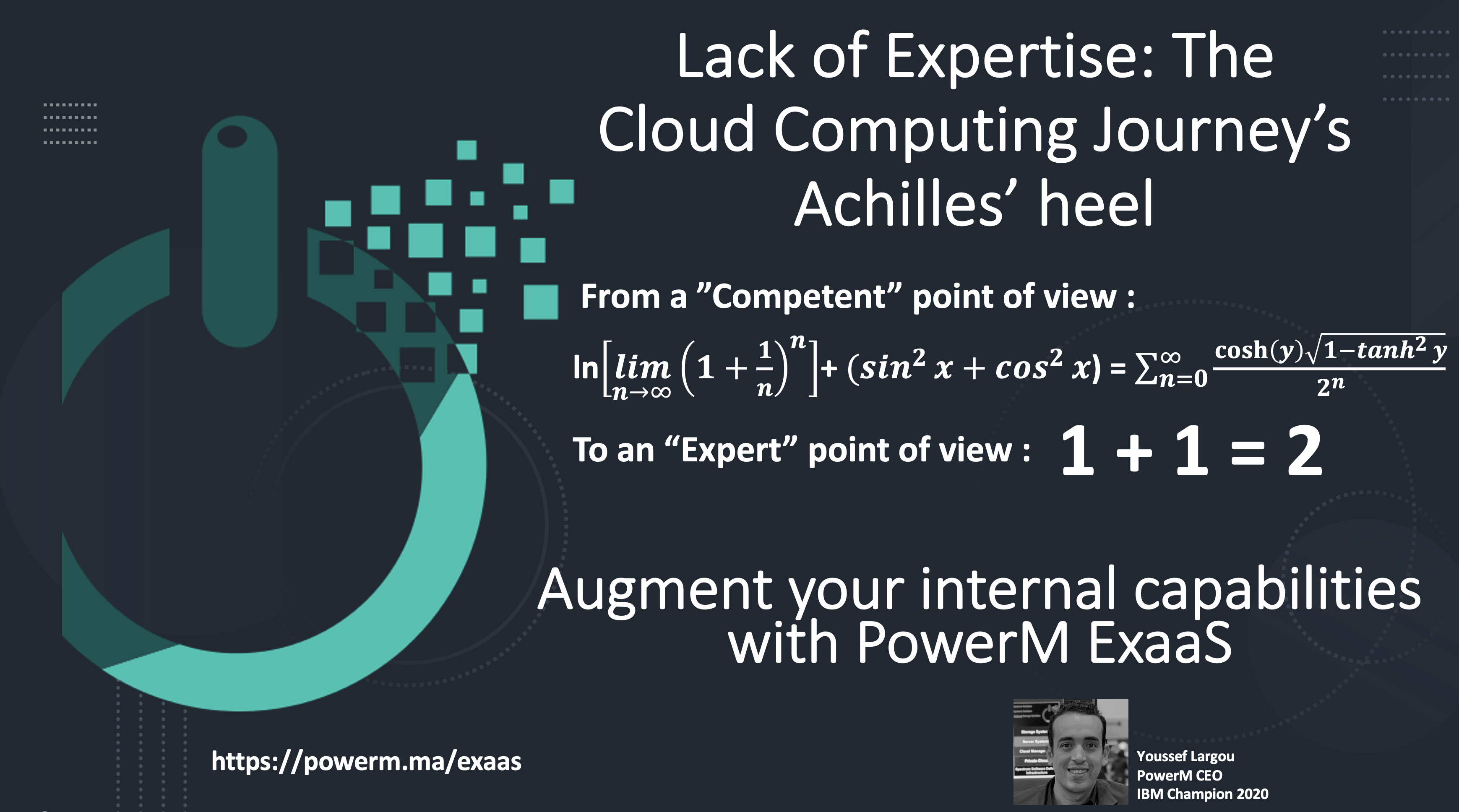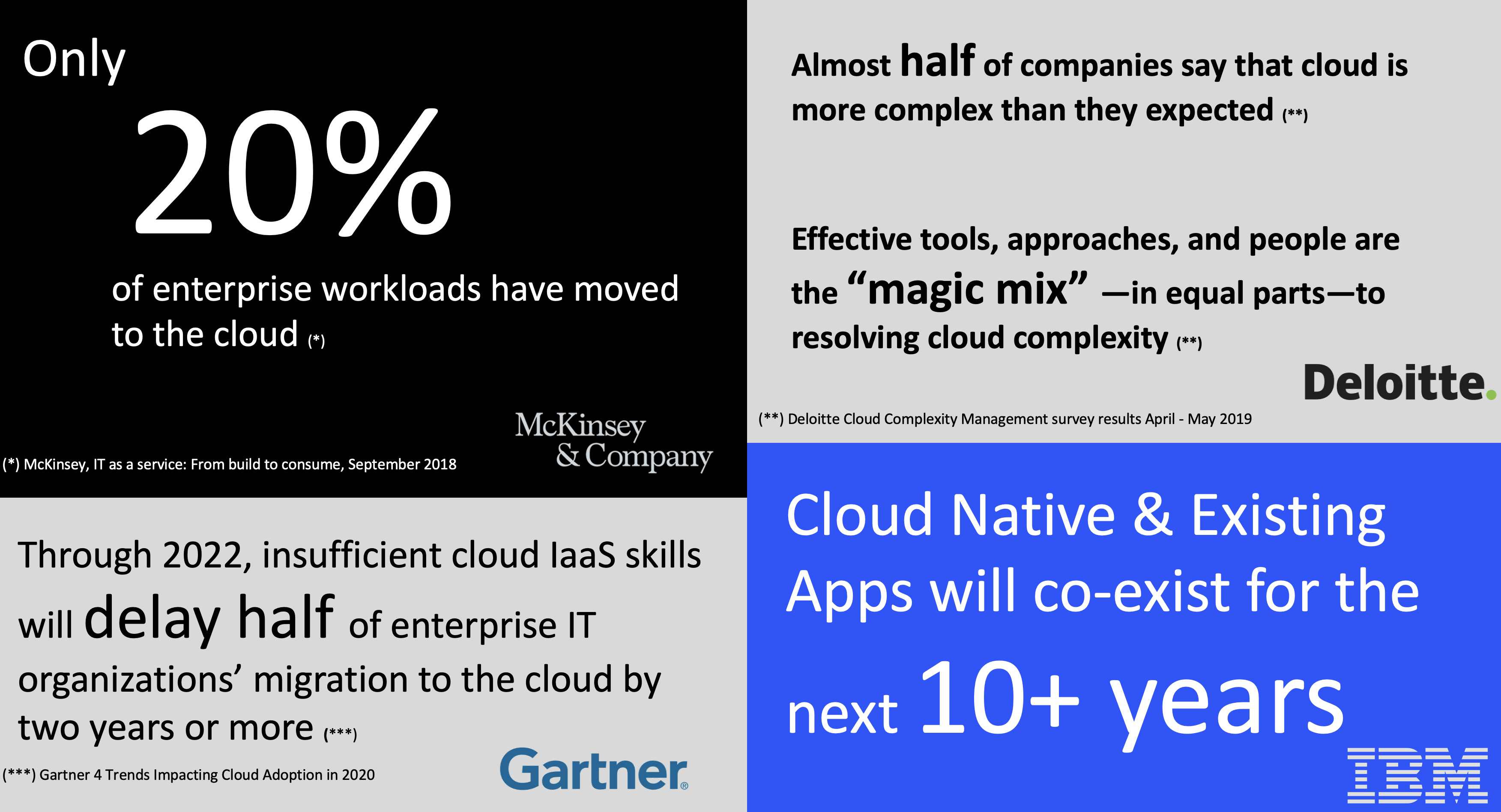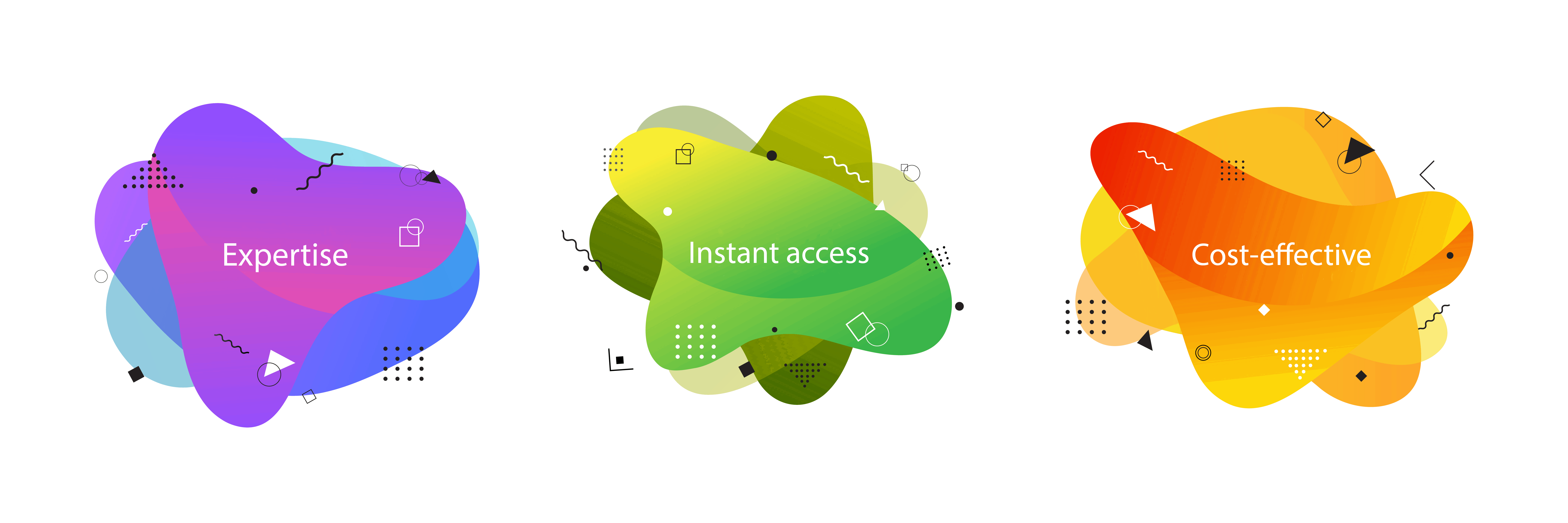
Lack of Expertise: The Cloud Computing Journey’s Achilles’ heel – Published 15 June 2020 – ID PM00220 – 3 min read
Introduction
In the era of cloud, digital transformation and COVID19 disruption, time to market and cost optimization are crucial.
The presence of talented people with relevant cloud skills is a key indicator of enterprise agility, including the ability to deliver cloud services where customers want to consume them, on-premises and on the edge.
The question on top mind of several organization is “How to solve the cloud complexity journey?”
Organizations are either already facing a skills gap or expecting to. The matter isn’t just a changing workforce; it’s also a changing the way the professional services will be delivered in the future.
Lack of expertise : the cloud computing journey’s Achilles Hills
For next five years, insufficient cloud skills will delay overwhelming majority of enterprise IT organizations’ migration to the cloud by a few years.
Today’s cloud migration strategies tend more toward applications lifting than toward modernization or refactoring. However, applications lifting projects don’t develop native-cloud skills.

This situation has many consequences:
- Service providers fail to retain, certify and train people quickly enough to satisfy the necessity for skilled cloud professionals.
- There is a rising of “fake experts” phenomena promoting either “one size fit all” approach or “make it too complex to sell more” paradigm: the fact is that
 and 1 + 1 = 2 are exactly the same representation of simplicity.
and 1 + 1 = 2 are exactly the same representation of simplicity. - Addressing « applications cloud readiness » by porting them “as is” on hyper-converged platform like, lead to software compliance and high locked-in and sunk costs.
- The migration to the cloud is done with decoupled teams, on separated sprints and autonomously.
- Experts are extremely rare and only available for large and complex projects.
As consulting companies struggle to engage experts with proven cloud skills, clients are not able to achieve their cloud adoption objectives. System integrators can be a component of the answer, but clients often don’t trust them because many of them also are still learning and struggle to scale their operations to satisfy demand.
To overcome the challenges of this workforce shortage, organization looking to migrate workloads to the cloud should work with either managed service providers or partners that have a proven record of successful management and migration of complex workloads either on premises or on the cloud.
Why you should act now?
“Business application experiences and architectures — as well as the entire business software landscape — will change drastically in the next five years. The ability of application leaders to realize their application visions for the future depends on the plans they put in place today.” (*)
Also, by 2025, 90% of current applications will still be in use, and most will continue to receive insufficient modernization investment. Enterprises can’t afford to rip and replace their existing integration infrastructure. They need to have the ability to balance traditional and modern applications and infrastructure, so they need to team with partners with deep experience on their legacy and existing platform while adopting a cloud native approach and modernizing the frameworks of integration.
Introducing PowerM Expertise as a Service
In a world where everything is connected, where everything as a service is the de-facto delivery model , where working from home is the new norm and business continuity is the ultimate priority for everyone, you need to address unprecedented challenges efficiently, instantly and cost effectively!

PowerM Expertise as a Service (ExaaS) is a cost effective online synchronous, asynchronous or on site delivery model to engage with PowerM consultants.
Unlike the traditional in-person way of receiving consulting services, ExaaS gives you the opportunity to receive smaller units of consulting (in the form of packages or subscriptions) without the costs of travelling, accommodation or in-person meetings.
Many of PowerM’s clients already have their own expert teams in-house. Time to market is a critical consideration, the special skills required or the number of experts needed will often surpass the internal resources available.
By collaborating with external resources from PowerM, our clients will:
- Accelerate the speed at which they’ll tackle projects.
- Bring the relevant skills and skill of PowerM’s resources up-to-date on completing new projects, and on improving and optimizing approaches taken on current projects.
- Through collaborative working, have the advantage of skills transfer to reinforce the capabilities , competencies and knowledge of the internal staff
Next Steps
Book a consultation with a PowerM SME and augment your internal capabilities: https://powerm.ma/exaas
References
- Deloitte Cloud Complexity Management survey results April – May 2019
- McKinsey, IT as a service: From build to consume, September 2018
- Gartner 4 Trends Impacting Cloud Adoption in 2020
- PowerM Expertise as a Service June 2020
- (*) Gartner, Predicts 2020: Application Leaders , 14 January 2020, ID G00464148
Disclaimer
This content was provided for informational purposes only. The opinions and insights discussed are mine and do not necessarily represent those of Power Maroc S.A.R.L.
Nothing contained in this article is intended to, nor shall have the effect of, creating any warranties or representations from Power Maroc S.A.R.L or its Partners (particularly IBM, DELL Technologies, Vmware, Redhat and Oracle), or altering the terms and conditions of any agreement you have with Power Maroc S.A.R.L

